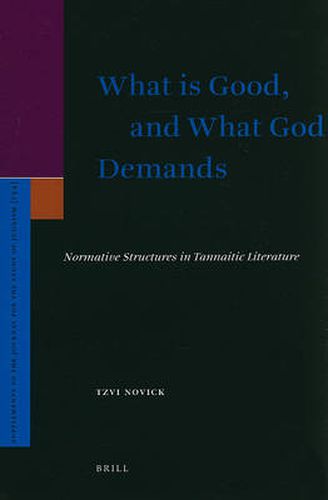Readings Newsletter
Become a Readings Member to make your shopping experience even easier.
Sign in or sign up for free!
You’re not far away from qualifying for FREE standard shipping within Australia
You’ve qualified for FREE standard shipping within Australia
The cart is loading…






The normative rhetoric of tannaitic literature (the earliest extant corpus of rabbinic Judaism) is predominantly deontological. Prior scholarship on rabbinic supererogation, and on points of contact with Greco-Roman virtue discourse, has identified non-deontological aspects of tannaitic normativity. However, these two frameworks overlook precisely the productive intersection of deontological with non-deontological, the first because supererogation defines itself against obligation, and the second because the Greco-Roman comparate discourages serious treatment of law-like elements. This book addresses ways in which alternative normative forms entwine with the core deontological rhetoric of tannaitic literature. This perspective exposes, inter alia, echoes of the post-biblical wisdom tradition in tannaitic law, the rich polyvalence of the category mitzvah, and telling differences between the schools of Akiva and Ishmael.
$9.00 standard shipping within Australia
FREE standard shipping within Australia for orders over $100.00
Express & International shipping calculated at checkout
The normative rhetoric of tannaitic literature (the earliest extant corpus of rabbinic Judaism) is predominantly deontological. Prior scholarship on rabbinic supererogation, and on points of contact with Greco-Roman virtue discourse, has identified non-deontological aspects of tannaitic normativity. However, these two frameworks overlook precisely the productive intersection of deontological with non-deontological, the first because supererogation defines itself against obligation, and the second because the Greco-Roman comparate discourages serious treatment of law-like elements. This book addresses ways in which alternative normative forms entwine with the core deontological rhetoric of tannaitic literature. This perspective exposes, inter alia, echoes of the post-biblical wisdom tradition in tannaitic law, the rich polyvalence of the category mitzvah, and telling differences between the schools of Akiva and Ishmael.